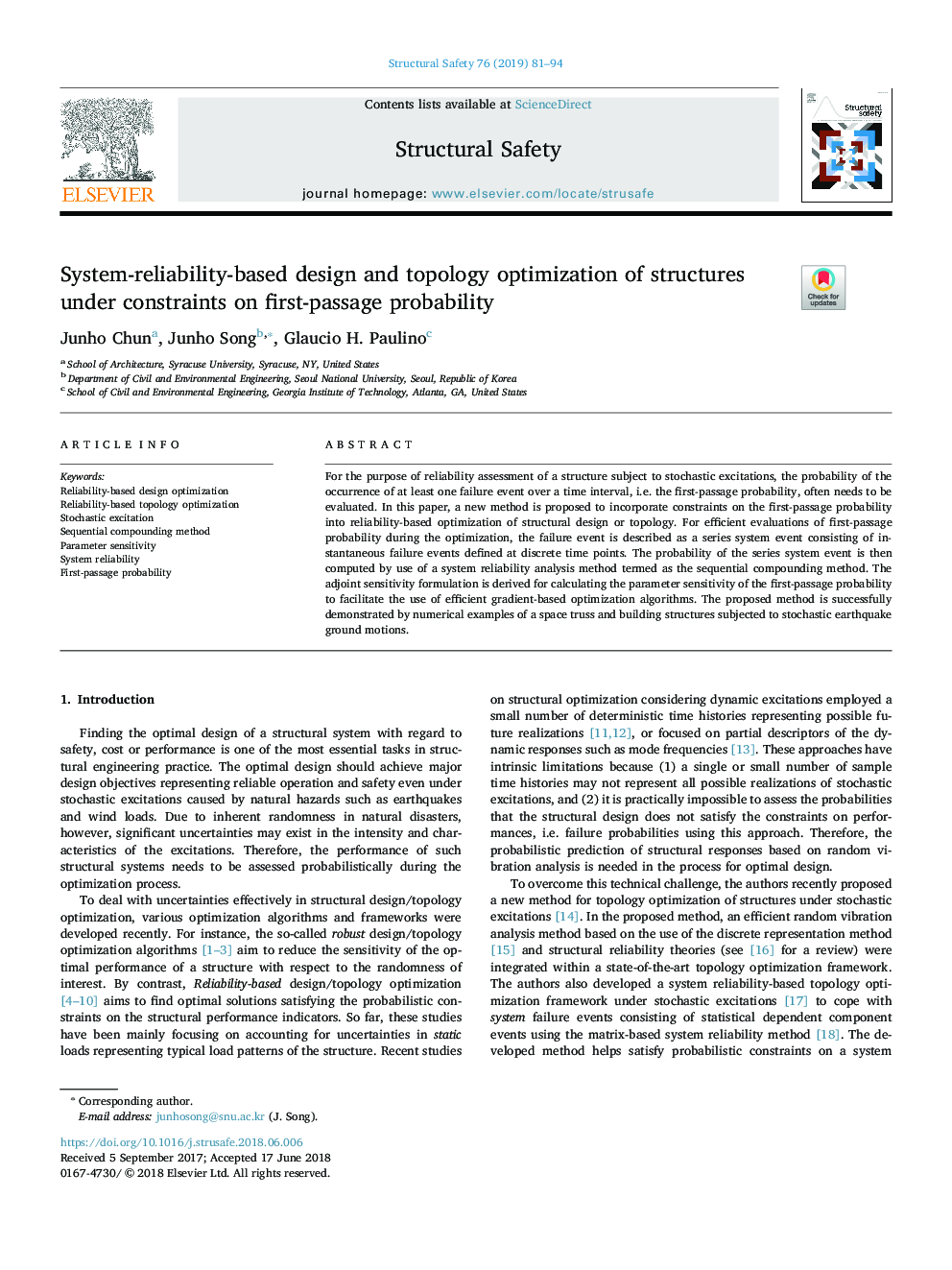| Article ID | Journal | Published Year | Pages | File Type |
|---|---|---|---|---|
| 9951903 | Structural Safety | 2019 | 14 Pages |
Abstract
For the purpose of reliability assessment of a structure subject to stochastic excitations, the probability of the occurrence of at least one failure event over a time interval, i.e. the first-passage probability, often needs to be evaluated. In this paper, a new method is proposed to incorporate constraints on the first-passage probability into reliability-based optimization of structural design or topology. For efficient evaluations of first-passage probability during the optimization, the failure event is described as a series system event consisting of instantaneous failure events defined at discrete time points. The probability of the series system event is then computed by use of a system reliability analysis method termed as the sequential compounding method. The adjoint sensitivity formulation is derived for calculating the parameter sensitivity of the first-passage probability to facilitate the use of efficient gradient-based optimization algorithms. The proposed method is successfully demonstrated by numerical examples of a space truss and building structures subjected to stochastic earthquake ground motions.
Keywords
Related Topics
Physical Sciences and Engineering
Engineering
Civil and Structural Engineering
Authors
Junho Chun, Junho Song, Glaucio H. Paulino,
